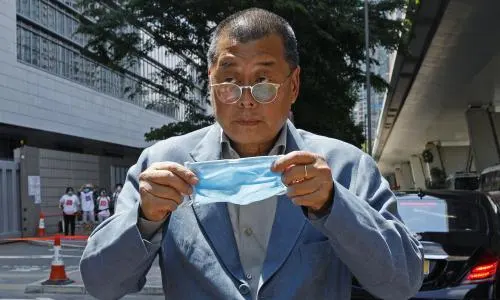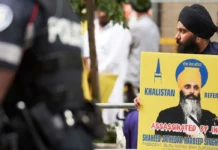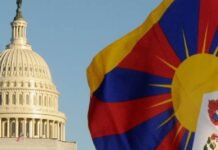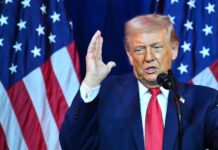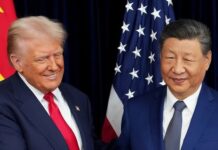HONG KONG: Hong Kong media mogul Jimmy Lai has gone for a trial for alleged national security offences, hours after the United Kingdom’s recent appeal for his prompt release, Al Jazeera reported.
Lai, detained since December 2020, appeared in court facing charges of conspiring to collude with foreign powers under China’s national security law imposed on the territory in June 2020.
Entering court at 10 am, the 76-year-old, attired in a blue shirt and carrying a book, reportedly looked thinner but exhibited good spirits, as observed by journalists present. Lai, a prominent critic of China, and publisher of the now-shuttered Apple Daily, was initially arrested in August 2020 during a police raid on the newspaper’s offices, as reported by Al Jazeera.
The trial, originally scheduled a year ago, faced delays as the government contested Lai’s choice of defence counsel, UK-based lawyer Timothy Owen, prompting Beijing’s intervention.
Lai and Apple Daily also confront charges under a sedition law from the British colonial era, with the media tycoon pleading not guilty to all allegations.
UK Foreign Secretary David Cameron expressed “grave concern” over the trial, aligning with the United States and European Union in urging Lai’s immediate release, as stated in a late Sunday statement.
“As a prominent and outspoken journalist and publisher, Jimmy Lai has been targeted in a clear attempt to stop the peaceful exercise of his rights to freedom of expression and association,” Cameron said, underscoring that the security law was in breach of the commitments made to Hong Kong when it recommenced sovereignty over the territory in 1997.
“I urge the Chinese authorities to repeal the National Security Law and end the prosecution of all individuals charged under it. I call on the Hong Kong authorities to end their prosecution and release Jimmy Lai,” his statement added.
Hong Kong’s pro-democracy leaders, once part of a thriving civil society and media landscape, faced intensified challenges following the large-scale protests in 2019. These demonstrations initially focused on apprehensions about a proposed extradition bill with mainland China but later evolved into demands for increased democratic freedoms.
Amnesty International, marking a year since the imposition of the security law, asserted that it had severely “decimated” Hong Kong’s rights and freedoms.
The United States echoed calls for the immediate release of Jimmy Lai and denounced the ongoing prosecution, according to Al Jazeera.
“Lai has been held in pre-trial detention for more than 1,000 days, and Hong Kong and Beijing authorities have denied him his choice of legal representation,” US State Department spokesperson Matthew Miller said in a statement, adding, “We call on Hong Kong authorities to immediately release Jimmy Lai and all others imprisoned for defending their rights.”
Heightened security measures were in place on Monday following a warning from Secretary for Security Chris Tang, who emphasised the need for enhanced security due to the history of disruptions and harassment by individuals in similar cases. Queues for tickets began early, but only 70 seats in the main venue of the West Kowloon court building were available to the public.
Riot police, some equipped with dogs, were present, and a bomb disposal vehicle was stationed nearby. The increased security aimed to ensure the smooth proceedings of the case and prevent any potential disruptions.
“Jimmy Lai’s case is a case of weaponising the legal system in Hong Kong,” Finn Lau, a UK-based activist and founder of Hong Kong Liberty, told Al Jazeera. “There is no rule of law in Hong Kong anymore. It is just rule by law.”
Lai has previously been convicted and imprisoned in separate cases related to the management of Apple Daily and his participation in a vigil commemorating the 1989 Tiananmen Square massacre.
In June 2021, the final edition of Apple Daily was printed. Other publications critical of the administration have also ceased operations, and electoral processes have been revamped to ensure that only individuals deemed “patriots” are eligible for public office in the territory.
The recent district council elections, held last week, recorded a historically low turnout of just 27.5 per cent. The number of directly elected seats was drastically reduced to 88 from the previous 462, and all candidates were required to obtain official approval before standing for election.
“Actions that stifle press freedom and restrict the free flow of information – as well as Beijing and local authorities’ changes to Hong Kong’s electoral system that reduce direct voting and preclude independent and pro-democracy party candidates from participating – have undermined Hong Kong’s democratic institutions and harmed Hong Kong’s reputation as an international business and financial hub,” Miller said in his statement, Al Jazeera reported. (ANI)
Also Read: China sanctions 5 US individuals for meddling in Hong Kong affairs

